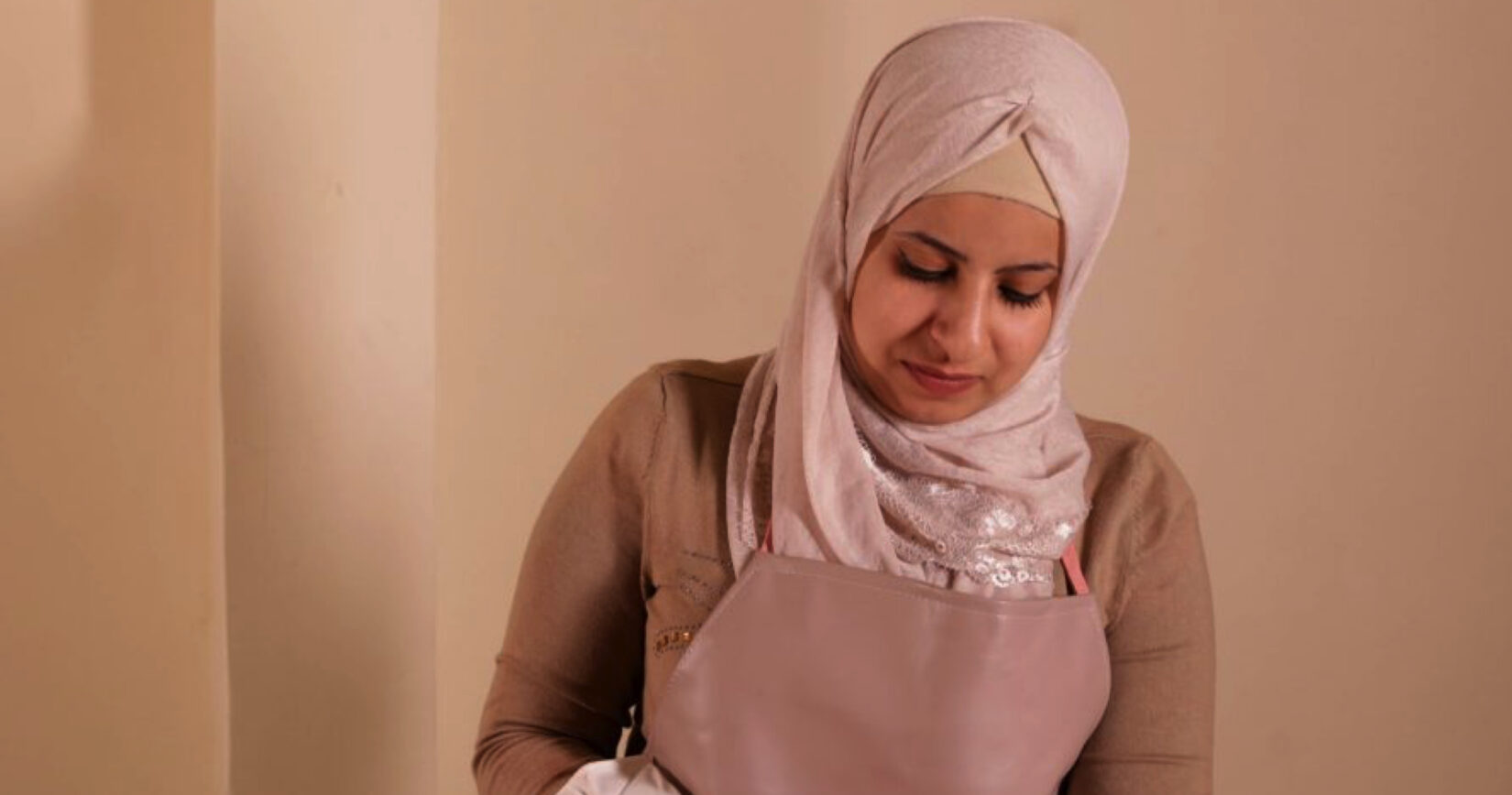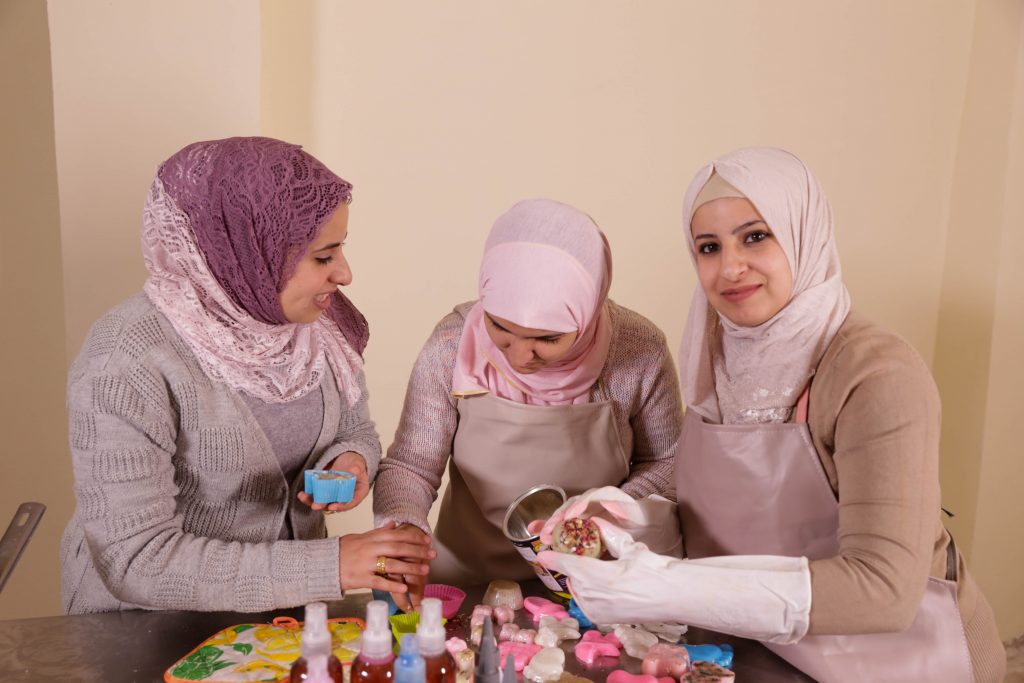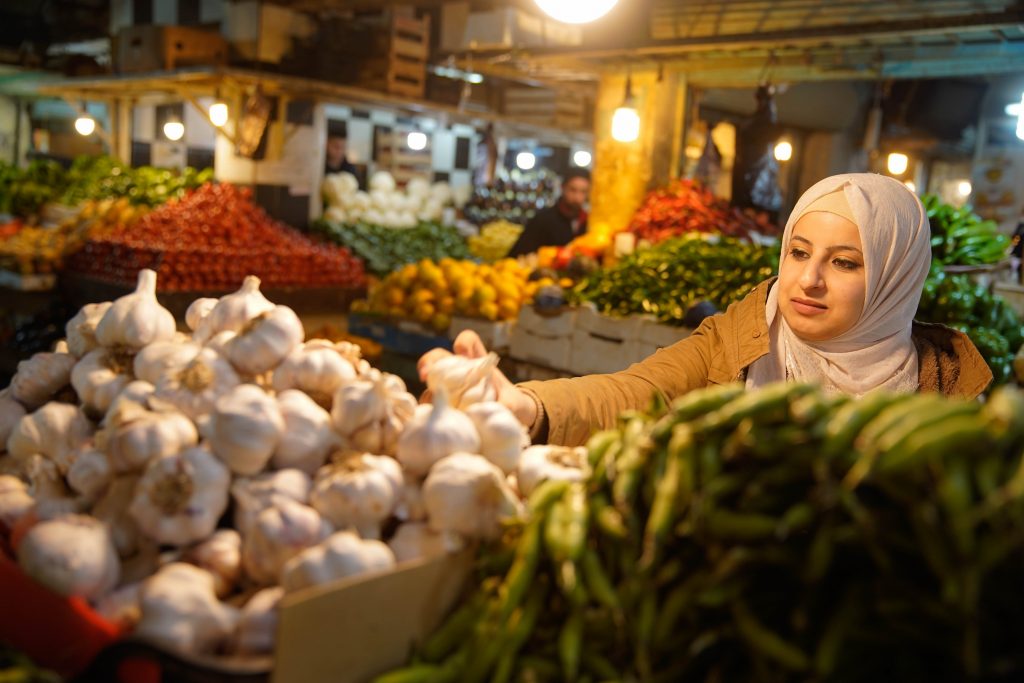
Bara’a Al-Shobaki is a young entrepreneur running a micro factory producing beauty products, oils, and vinegars in Zarqa, Jordan. She is succeeding in business after overcoming obstacles that she would never have faced if she were a man. In addition to running her business, she oversees an association that focuses on empowering Jordanian women in finance.
Twenty-five year old Bara’a Al-Shobaki is one of seven siblings. When her father’s job wasn’t enough to support the whole family, her mother started buying and selling garments out of their small house. She became so successful that she had over 250 customers and started exporting to Syria. Perhaps this gave Bara’a the strength and determination to start her own business, even though all banks initially turned her down.
Bara’a did well at school and decided to go to university to study economics. It is an unusual subject choice as it’s usually dominated by men. Her father told people that she was studying engineering instead as he thought it was more appropriate for a young woman.
While at university, Bara’a started making soaps and oils and sell to her friends.
“I wanted to be able to cover my own expenses so that I wasn’t a financial burden on my family,” she says and continues: “I was at the beginning of the dream of how to be self-dependent and create my own revenue, and I loved it!”
However, her father was against her decision and thought she should get a profession other than manufacturing. In Jordan, women who complete university are expected to work in the service industry, such as teaching. “It is shameful for a woman to work in production. My father was worried I would bring shame on the family by having to deal with so many men in my line of work.”
To grow her business, Bara’a went to several banks and asked for a loan. But no bank would support her and asked for securities or high guarantees that were not achievable. Instead, Bara’a pulled together 20 JOD (US$28) to buy the basic materials so that she could continue producing from home.

As Bara’a continued making a wide range of products including oils, vinegars and beauty products, people started noticing her business and she won several awards. Soon after, the banks started to take her seriously and she secured a loan of 5,000 JOD (US$7,000) from the Agricultural Credit Fund. The loan enabled Bara’a to turn her small project into a factory and she will pay it back over five years.
“The banking world is still very male dominated. I would love to see them involving women in developing services and products. There are plenty of women in Jordan with financial skills and knowledge. I can assure you, having women on board will make a difference. Because we know the barriers we face everyday. We know what we need. But most importantly, we know what we can achieve,” Bara’a says.
Through a Global Program for Equality operated by CARE with support from the H&M Foundation, she received training and a grant, and today she’s a proud owner of a small factory. Her products are sold in salons, shops, bazaars and online. “Now I have many other young women coming to me asking for advice and motivation. I have also set up an association with my friends, which focuses on empowering Jordanian women in work.”
“Now my father now has a totally different view of me, he is proud of all that I have achieved. I have learnt so much from my mother – she is what motivates me. I learnt from her how to gain respect and break community constraints,” she says.
In the future Bara’a wants to finish her MBA and integrate science into her work using natural Jordanian resources and diversify and grow her products. “I want to really distinguish myself in the industrial sector and put my mark on it. But I don’t see value in personal success. Success is having a positive impact on my community.”

 BACK TO STORIES
BACK TO STORIES